 |
 |
 |
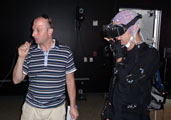 The Discovery Channel in Dr. Poizner’s Lab The Discovery Channel in Dr. Poizner’s Lab
The Discovery Channel filmed Howard Poizner and Gary Lynch in Dr. Poizner’s lab on June 12, 2010, for a series called ‘Curiosity: The Questions of Life,’ on research of the future. The segment is on memory and will air in 2011.
|
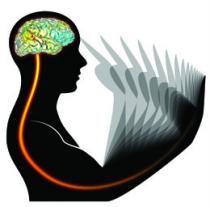 Howard Poizner and Team Awarded $4.5M ONR MURI Grant Howard Poizner and Team Awarded $4.5M ONR MURI Grant
Howard Poizner (PI, UCSD), and co-PI's Gary Lynch (UC Irvine) and Terry Sejnowski (Salk and UCSD), were recently awarded a $4.5M ONR MURI grant, with a $3M option period, to study the brain bases of unsupervised learning and training. (October 1, 2009*).
*Note: We are announcing the grant now, as it wasn't publicly announced when the grant was originally awarded.
|
 TDLC's REU Program TDLC's REU Program
 TDLC is starting a Research Experience for Undergraduates (REU) Site program at UC San Diego. The grant, recently awarded by the National Science Foundation, will be funded for three years. The purpose of the program is to train undergraduate students in the specific research areas of TDLC, including machine learning, cognitive science, psychology, and neuroscience. More TDLC is starting a Research Experience for Undergraduates (REU) Site program at UC San Diego. The grant, recently awarded by the National Science Foundation, will be funded for three years. The purpose of the program is to train undergraduate students in the specific research areas of TDLC, including machine learning, cognitive science, psychology, and neuroscience. More
|
|
FROM LAB TO CLASSROOM
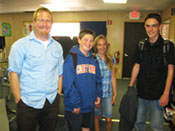 The goal of gaining increased knowledge of how the brain learns and translating the scientific understanding into the classroom is a major tenet of TDLC, and just now the Social Interaction Network’s Terry Jernigan is helping develop a more complete model of brain development and its role in education. The research project comes out of partnership with San Diego’s High Tech Middle School in San Marcos and combines brain imaging with behavioral assessment and training of 40 student volunteers to track social/emotional functions – the mental processes that take the longest time for humans to develop. More The goal of gaining increased knowledge of how the brain learns and translating the scientific understanding into the classroom is a major tenet of TDLC, and just now the Social Interaction Network’s Terry Jernigan is helping develop a more complete model of brain development and its role in education. The research project comes out of partnership with San Diego’s High Tech Middle School in San Marcos and combines brain imaging with behavioral assessment and training of 40 student volunteers to track social/emotional functions – the mental processes that take the longest time for humans to develop. More
|
|
|
|
 "Music, Science and Medicine" NYAS Conference "Music, Science and Medicine" NYAS Conference
There is growing interest amongst TDLC scientists in the scientific study of music. Music is intrinsically temporal, integrating sensory, motor and affective systems in the brain. As such, it is an ideal way to integrate across TDLC networks and initiatives. Two TDLC PIs (Paula Tallal and Gyorgy Buzsaki) have been involved in organizing a New York Academy of Science conference on "Music, Science and Medicine", that will be held at the NYAS on March 25th, 2011. Anyone interested in this topic is welcomed to attend. For more information on the speakers and agenda for the meeting, to register or to submit a poster please see: www.nyas.org/musicscience.
View videos here!
|
|
| |
|
This message was sent from:
The Temporal Dynamics of Learning Center (TDLC.UCSD.EDU)
University of California, San Diego,
9500 Gilman Drive, La Jolla, CA 92093
To learn more about TDLC, please visit us on the web at: TDLC.UCSD.EDU
Please contact webmaster@tdlc.ucsd.edu to unsubscribe.
TDLC is a Science of Learning Center (SLC),
one of six SLCs funded by the National Science Foundation. NSF grant #SBE-0542013 |
|
 |
 |
 September 2010 September 2010
|
|

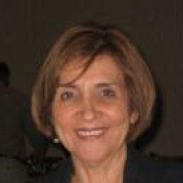
TDLC's The Educator Network
Recent Topic:
LA Times study of effective and ineffective teachers
A recent article in the LA Times suggests that it is easy to measure teacher effectiveness based on the improvement of the kids, and that there is higher variation within a school than between schools. The article suggests school districts should be using these methods to identify weak teachers so that they can be helped.
|
|
|
 |
 |
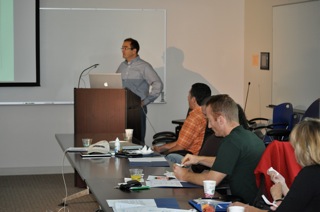
The Distinguished Educator Advisory Panel Meeting of June 5, 2010
The Distinguished Educator Advisory Panel met on 6/5/10 to hear two of our scientists explain their work and how it translates to education. Paula Tallal spoke on literacy and timing. Javier Movellan discussed machine learning and how robots are being programmed to give realistic feedback to students. Also in response to a discussion on rewards in learning, Andrea Chiba gave a quick review of neuroanatomy and the brain's reward system.
|
|
|
 |

![]()
